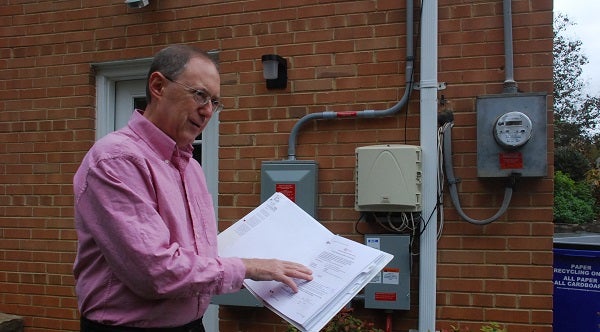What if utilities and consumers worked together to advance solar?

As more and more homeowners install solar across Pennsylvania, utilities are increasingly perceiving a threat to their business model. Each one of those solar customers is buying much less electricity, which means less revenue flowing to their utility. Similarly, when a homeowner improves the energy efficiency of their home, the utility also sees a drop in revenue from that customer. Finally, much of a utility’s profits come from building new grid infrastructure, from which they are guaranteed a certain profit margin by our Public Utility Commission (PUC). As electricity demand falls due to more energy efficiency and solar, this reduces the need for new infrastructure and, by extension, opportunities for utilities to make money. This is why many utilities, guided by industry-backed think tanks like the Edison Electric Institute, try to discourage solar by increasing fixed charges on your bill or even attacking state net metering policies.
But what if we changed the way utilities make money so that they weren’t threatened by solar? What if utilities could turn a profit based on how well they met publicly-supported goals, like encouraging renewable energy? Going even further, what if we completely disconnected electricity sales from profits, so that utilities didn’t have an incentive to simply sell as many kilowatt-hours as possible?
Regulators at the Pennsylvania PUC will soon be advising electric utilities to consider these very questions, which collectively are referred to as “alternative ratemaking methodologies.” Public discussions about alternative ratemaking have been going on for years between the PUC, utilities, and other stakeholders. However, things came to a head recently with the passage of Act 58 in July, which allows utilities to propose new ratemaking methodologies to the PUC. Currently, the PUC has written a Tentative Implementation Order laying out the rules governing how utilities could develop new ways to earn revenue.
We are still a long way off from any utilities actually submitting an alternative ratemaking proposal to the PUC, and even further from that new structure going into effect. And as with many complex regulatory issues, the devil is in the details on how exactly this will impact customers. Some stakeholders have expressed concern that this could pave the way for higher electricity rates for customers, depending on how new ratemaking systems are designed.
Overall, solar supporters in Pennsylvania should be cautiously optimistic about this development, as it could remove the incentive for utility opposition to solar and even pave the way for more robust solar incentives. When utilities do start to propose new ratemaking systems to the PUC, there will still be a formal rate case and opportunities for ratepayers to submit comments. When that happens, Solar United Neighbors will be there to help you make your voice heard.
